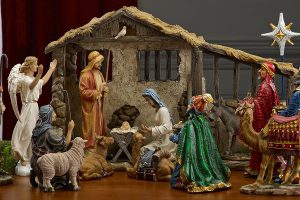
“Why did Africa let Europe cart away millions of Africa’s souls from the continent to the four corners of the wind? How could Europe lord it over a continent ten times its size? Why does needy Africa continue to let its wealth meet the needs of those outside its borders and then follow behind with hands outstretched for a loan of the very wealth it let go? How did we arrive at this, that the best leader is the one that knows how to beg for a share of what he has already given away at the price of a broken tool? Where is the future of Africa?”
Kenyan author previously known as James Ngugi and later on changed his name to Ngugi wa Thiong’o, in his native Kikuyu is one of the African writers whose life has been characterized by a continued struggle against the evils of post-colonial Kenya and by implication post-colonial Africa. And one of the evils of African post-colonial politics is the tyrannical rule by the so-called “Big Men” who kept African tied to the intellectual and political chariots of the colonizers while keeping their populations in utter poverty and dehumanization as they wallow in untold riches and in lives that closely imitate or even surpass those of their old colonizers.
Ngugi wa Thiongo is one of the bravest, the most consistent and fighting writers of Africa who never compromised their convictions to the neo-colonial realities of capitalism and imperialism or to the requirements of the market but continue to work for the true liberation of Africa from colonial stereotypes and institutions that created so many home-grown tyrants and self-proclaimed saviors who, in the final analysis proved to be the faithful heirs of the old colonizers who created heaven on earth for themselves and their cronies while the majority of Africans continue to wallow in political and economic brutalization and dehumanization.
Wa Thiongo literary career coincided with the rise and growth of the African “big Men” and their local and foreign cronies. He started writing at a time when post-colonial Kenya was wrangling with the demons of its home-grown tyrants that replaced European masters. he articulated and the trials and tribulations of his people in his early works such as “Weep not Child” and “the Devil on the Cross”, works that articulated the aspirations of the masses and exposed the evil machinations of the post-colonial order of things in Kenya as well as in Africa at large.
Wa Thiongo is a Kenyan writer who writes for Africa since the beginning of his career. His convictions too are quite obvious from his writings. He stood with the downtrodden suffering millions and exposed the evil machinations of the tyrannical rulers whose psychology can be best portrayed by Franz Fanon’s famous dichotomy as “Black Skin, White Mask”.
Ngugi’s literary career spans decades starting from the 1960s and Wizard of the Crow might be taken as the highest point in his long literary journey. From available documents dealing with his long career one can for instance read the following passages in Encyclopedia Britannica.
East Africa’s leading novelist, whose popular Weep Not, Child (1964) was the first major novel in English by an East African. As he became sensitized to the effects of colonialism in Africa, he adopted his traditional name and wrote in the Bantu language of Kenya’s Kikuyu people.
Ngugi received bachelor’s degrees from Makerere University, Kampala, Uganda, in 1963 and from Leeds University, Yorkshire, England, in 1964. After doing graduate work at Leeds, he served as a lecturer in English at University College, Nairobi, Kenya, and as a visiting professor of English at Northwestern University, Evanston, Illinois, U.S. From 1972 to 1977 he was senior lecturer and chairman of the department of literature at the University of Nairobi.
The prizewinning Weep Not, Child is the story of a Kikuyu family drawn into the struggle for Kenyan independence during the state of emergency and the Mau Mau rebellion. A Grain of Wheat (1967), generally held to be artistically more mature, focuses on the many social, moral, and racial issues of the struggle for independence and its aftermath.
A third novel, The River Between (1965), which was actually written before the others, tells of lovers kept apart by the conflict between Christianity and traditional ways and beliefs and suggests that efforts to reunite a culturally divided community by means of Western education are doomed to failure. Petals of Blood (1977) deals with social and economic problems in East Africa after independence, particularly the continued exploitation of peasants and workers by foreign business interests and a greedy indigenous bourgeoisie.
In a novel written in Kikuyu and English versions, Caitaani Mutharaba-ini (1980; Devil on the Cross), Ngugi presented these ideas in an allegorical form. Written in a manner meant to recall traditional ballad singers, the novel is a partly realistic, partly fantastical account of a meeting between the Devil and various villains who exploit the poor. Mũrogi was Kagogo (2004; Wizard of the Crow) brings the dual lenses of fantasy and satire to bear upon the legacy of colonialism not only as it is perpetuated by a native dictatorship but also as it is ingrained in an ostensibly decolonized culture itself.
The Black Hermit (1968/; produced 1962) was the first of several plays, of which The Trial of Dedan Kimathi (1976; produced 1974), co-written with Micere Githae Mugo, is considered by some critics to be his best. He was also coauthor, with Ngugi wa Mirii, of a play first written in Kikuyu, Ngaahika Ndeenda (1977; I Will Marry When I Want), the performance of which led to his detention for a year without trial by the Kenyan government. (His book Detained: A Writer’s Prison Diary, which was published in 1981, describes his ordeal.) The play attacks capitalism, religious hypocrisy, and corruption among the new economic elite of Kenya. Matigari ma Njiruungi (1986; Matigari) is a novel in the same vein.
Ngugi presented his ideas on literature, culture, and politics in numerous essays and lectures, which were collected in Homecoming (1972), Writers in Politics (1981), Barrel of a Pen (1983), Moving the Centre (1993), and Penpoints, Gunpoints, and Dreams (1998). In Decolonizing the Mind: The Politics of Language in African Literature (1986), Ngugi argued for African-language literature as the only authentic voice for Africans and stated his own intention of writing only in Kikuyu or Kiswahili from that point on.
Such works earned him a reputation as one of Africa’s most articulate social critics. After a long exile from Kenya, Ngugi returned in 2004 with his wife to promote Mũrogi was Kagogo. Several weeks later they were brutally assaulted in their home; the attack was believed by some to be politically motivated. After their recovery, the couple continued to publicize the book abroad. In 2010 Ngugi published Dreams in a Time of War, a memoir of his childhood in Kenya.
Wizard of the Crow is therefore his latest major work that has attracted both praise and critical acclaim is Kenya and abroad. One of the exceptional features of Wizard of the Crow is that it was written In Swahili and then translated into English by the author in order to realize his belief that authentic African literature should be written in African languages in order to cast away the colonial experience and achieve a kind if African cultural and spiritual reinvention.
Many reviews of Wizard of the Crow have been over the years but I found the following one interesting and worth reading so that readers can get a glimpse of the novel and that it encapsulates and its significance as well as shed a light on the background of its author.
Ngugi wa Thiong’o’s first novel in his mother tongue, Gikuyu, was written in a Kenyan jail on lavatory paper while he was a prisoner of conscience in 1978. Devil on the Cross, a satire on Kenya’s kleptocracy, gets a humorous nod in his latest novel, whose eponymous “wizard” finds a man reading aloud from it in a crowded bar. The wizard is awed by a “tale-monger” who can hold an audience so spellbound that “some of them had even forgotten that they had come here to drink”.
Wizard of the Crow, originally serialized, was also partly destined to be read aloud, as much like a piece of theatre as fiction; Ngugi is also a playwright. Writing in English as James Ngugi, he became one of Africa’s leading authors, and his novels A Grain of Wheat (1967) and Petals of Blood (1977) are Penguin Modern Classics. But after he renounced his Christian name and staged plays in the language of Kenya’s largest ethnic group, he was jailed and forced into exile – he now lives in California. Prison cemented his resolve to write fiction only in Gikuyu. “A slave first loses his name, then his language,” says his wizard, and Ngugi’s aim has been to restore both, to “decolonize the mind”.
His new novel is set in the Free Republic of Aburiria, a fictitious African dictatorship that owes much to the Kenya of Ngugi’s erstwhile persecutor, former president Daniel arap Moi. Yet the “Ruler”, whose suits patched with big cats’ fur have pinstripes composed of tiny letters spelling “Might Is Right”, shares traits with despots from Marcos and Mobutu to Pinochet, Suharto and Idi Amin. As the author writes in an afterword, he drew on his exile in London in the 80s, when he helped to campaign to free political prisoners from Kenyan and other postcolonial dungeons. The novel’s atmosphere of paranoia about the “M5” secret police has its roots in that reality.
Yet, realism is not the chosen weapon in a novel whose absurdist, scatological satire is reminiscent of Alfred Jarry’s Ubu plays, or Carlos Fuentes’s novelistic skewering of Mexico’s Machiavellis in The Eagle’s Throne. As the supreme kleptocrat (“A loot- a continua”) lays hubristic plans for Africa’s tallest skyscraper, sycophants jockey around him.
Resorting to plastic surgery to keep enemies under surveillance, one minister has his eyes “enlarged to the size of electric bulbs”, while a rival’s ears are made “larger than a rabbit’s”. An embodiment of the putrid body politic, the Ruler outlives his usefulness to his post-cold war western allies, only to puff up like a pregnant balloon until he bursts forth with Baby Democracy, a cynical façade of multiparty politics cheered by the “Global Bank missionaries”.
The Ruler’s adversaries are a young couple. Kamiti is an unemployed graduate and herbal healer with a nose sensitive to the stench of corruption. He dons the mantle of a powerful wizard as “a cover, a joke”, but is a reluctant hero born of a line of seers; his grandfather fought British rule – as did the author’s family. Kamiti’s lover, Nyawira, heads the Movement for the Voice of the People, and, in some of the most absorbing passages in the novel, takes the lead in their relationship. When Kamiti sighs, “The world has no soul,” Nyawira responds: “Then change the world. Give it a soul.”
The Ethiopian Herald Sunday Edition 1 December 2019
BY MULUGETA GUDETA





